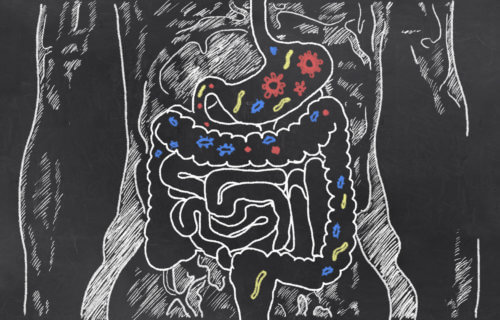SEATTLE — Living a long and healthy life depends on the unique combination of bacteria in our gut, according to a new study. Patterns in a person’s microbiome — the organisms living in the gut — could determine whether a person is going to age well or die early, say scientists.
The gut contains mostly healthy bacteria and immune cells, which help ward off infections and diseases. Although a vital component of the body’s immune system, its importance in the aging process has remained unclear. Now, researchers at the Institute for Systems Biology in the United States show that the gut microbiome continues to evolve, but only among healthy people.
“Prior results in microbiome-aging research appear inconsistent, with some reports showing a decline in core gut genera in centenarian populations, while others show relative stability of the microbiome up until the onset of aging-related declines in health,” says co-author Dr. Sean Gibbons in a statement. “Our work, which is the first to incorporate a detailed analysis of health and survival, may resolve these inconsistencies. Specifically, we show two distinct aging trajectories. One, a decline in core microbes and an accompanying rise in uniqueness in healthier individuals, consistent with prior results in community-dwelling centenarians, and two, the maintenance of core microbes in less healthy individuals.”
Researchers analyzed the gut microbiome of 9,000 people aged between 18 to 101 years old for the study. In particular, the team tracked survival rates for a cohort of 900 older individuals aged 78 to 98.
Their work shows that gut microbiome became increasingly unique as participants got older. Core bacteria, known as bacteriodes and common to all humans, start to decline in mid-to-late adulthood.
“Interestingly, this uniqueness pattern appears to start in mid-life — 40 to 50 years old — and is associated with a clear blood metabolomic signature, suggesting that these microbiome changes may not simply be diagnostic of healthy aging, but that they may also contribute directly to health as we age,” says study co-author Dr. Tomasz Wilmanski. “For example, indoles are known to reduce inflammation in the gut, and chronic inflammation is thought to be a major driver in the progression of aging-related morbidities.”
Despite their increasing uniqueness, healthy microbiome continued to share common traits. People with unique gut patterns had different substances in their blood plasma, known as metabolites, the study shows. This includes tryptophan-derived indole, which has been shown to extend lifespan in mice.
Another metabolite, Phenylacetylglutamine, had previously been found in high quantities in the blood of centenarians. But this unique transformation only took place among healthy individuals, the researchers say.
“This uniqueness signature can predict patient survival in the latest decades of life,” says Dr. Tomasz Wilmanski. “Healthy individuals around 80 years of age showed continued microbial drift toward a unique compositional state, but this drift was absent in less healthy individuals.”
That the microbiome continues to develop in later life among healthy individuals could have major clinical implications, the researchers say. “This is exciting work that we think will have major clinical implications for monitoring and modifying gut microbiome health throughout a person’s life,” co-author Dr. Nathan Price adds.
The findings are published in the journal Nature Metabolism.
SWNS writer Tom Campbell contributed to this report.
Read more on gut health:
